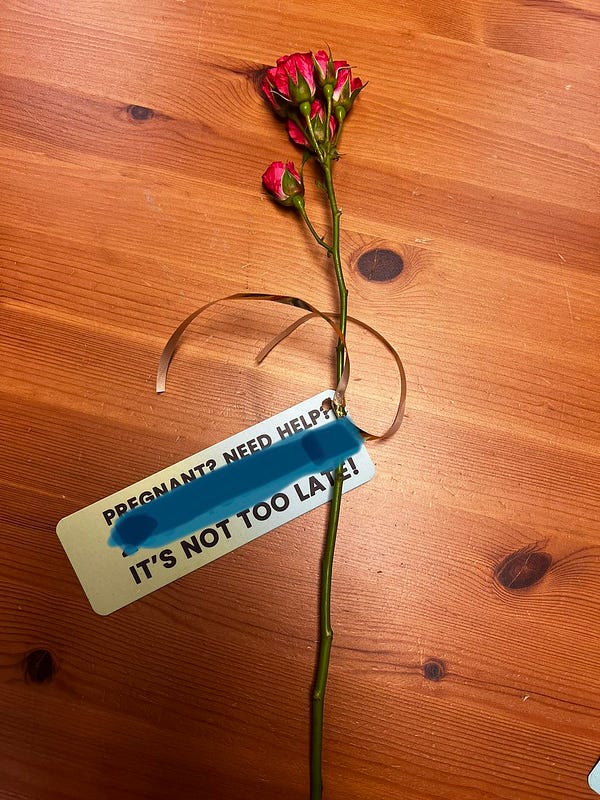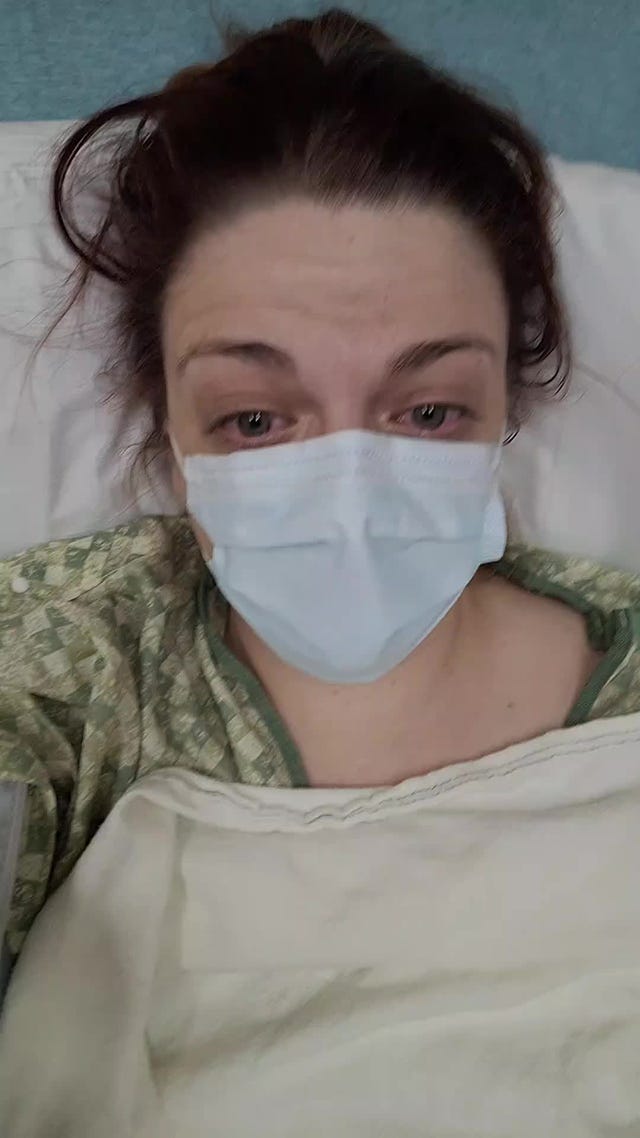In the states…
We knew this was coming. Florida Gov. Ron DeSantis says he wants to sign a near-total abortion ban. From the Orlando Sentinel:
“DeSantis said he would sign more anti-abortion legislation when asked if he supported a ‘heartbeat bill’ that would ban abortion at about six weeks of pregnancy. ‘I’m willing to sign great life legislation. That’s what I’ve always said I would do,’ DeSantis said.”
Just a reminder that the term ‘heartbeat bill’ is a misnomer; a 6-week embryo does not have a heartbeat because it does not have a heart.
Some good news out of Ohio, though: A court of appeals dismissed a request from state Attorney General Dave Yost to remove a block banning enforcement of the state’s abortion ban. So at least for now, abortion remains legal in Ohio up until 22 weeks.
A warning that this is really upsetting. A woman in Idaho who is miscarrying and was denied an abortion has been documenting herself getting sicker and sicker over the last two days. It’s a hard, horrible watch—but important. (I’ve been in touch to see if/how I can help)
 Tiktok failed to load.
Tiktok failed to load.Enable 3rd party cookies or use another browser
Reproductive rights and justice activists in Georgia are raising the alarm about crisis pregnancy centers in the state. Agbo Ikor, the policy director of Spark Reproductive Justice Now, says, “To have an organization who positions themselves as providers of medical care essentially mislead folks can be very dangerous and harmful to people who are just looking for care.”
Here’s another bit about CPCs in Georgia that I wasn’t aware of and is really troubling: Lawmakers in the state passed legislation earlier this year that’s going to allow them to open and run “maternity supportive housing residences” (MSHRs) for new mothers. These centers won’t be regulated in the same way other community residences are, and there’s a lot of racist/classist/fucked up history around Christian-led maternity homes:
“Allison Coffman, executive director of Amplify Georgia Collaborative, a convenor of Georgia reproductive health, rights, and justice organizations, pointed out that their concerns have a historical basis. Maternity houses have been used to separate unwed pregnant people from the support of their families and communities so they’d be more susceptible to pressure to give birth and put their children up for adoption.”
Speaking of how unethical crisis pregnancy centers are, a Minnesota center is suing a man over what they say was a large donation his father made before his death. Here’s where it gets horrific: The 81 year-old, who emptied the family trust of over $800k for the donation, told the center he planned on killing himself and did so the following day. His son is arguing, understandably, that his father wasn’t of sound mind. Another eye-raising fact about the case? The crisis pregnancy center, Minnesota Citizens Concerned for Life, is run by the husband of U.S. Rep. Michelle Fischbach.
A reminder that clinics in pro-choice states are being overrun with anti-choice activists; check out this entire thread from a provider in Maryland:


Quick hits:
The Boston Globe has a short profile of the (very brave) woman who helped change abortion law in Massachusetts;
Philadelphia, Pennsylvania passed a package of bills yesterday to protect abortion patients;
The city council in Toledo, Ohio is considering allocating funds to people who need to travel out of the state for abortion;
Milwaukee, Wisconsin is putting abortion on a county ballot measure, asking voters if the state’s abortion ban should be repealed (the vote wouldn’t be able to change state law);
and Oklahoma Public Radio has a segment on what happened with the initiative to get abortion on the ballot in the state, and why organizers took a step back for the time being.
In the nation…
New research on the portrayal of abortion on television reports that more shows have abortion storylines, and that there was a huge increase in the number of storylines around barriers to access abortion. Abortion Onscreen also found that only 6% of characters had medication abortion, even though more than half of those ending their pregnancy use medication; and that the “demographic reality of who gets abortion is misrepresented on screen.” (Essentially, the characters are overwhelmingly white, middle class women.) Definitely worth checking out the whole report.
We know that abortion clinics in pro-choice states are completely overwhelmed; and that there aren’t enough providers to keep up with the influx of patients from anti-choice states. That’s why some places like California (and possibly Montana, soon) are expanding who is allowed to provide abortions. This piece in The Washington Post has a recommendation, pointing out something reproductive rights activists have been saying for years: You should be able to get an abortion at your regular OBGYN’s office.
“That separation stigmatizes abortion, making it seem as if it isn’t really health care. It also makes it easier for protesters to target patients and doctors, sometimes with vandalism or violence. And where there is only a single clinic for hundreds of miles, restricting access to abortion is as easy as forcing one clinic to close.”
Very much agree. There is no reason that your own OBGYN shouldn’t be able to give you an abortion if you need one, it’s a normal part of reproductive health care—but Republican legislation is built on the idea that abortion is something distinct, and creates hurdles to keep it that way.
The president of a national infertility organization, RESOLVE, has written an op-ed about how abortion bans will impact families who need fertility treatments. Barb Collura writes that “if a state defines a fertilized egg as a person, then allowing any ‘harm’ to come to that microscopic embryo could be potentially considered manslaughter or even murder.” Which means that the process of creating multiple embryos and other common steps in the IVF process like freezing or discarding embryos, could result in criminal charges. She also points out that abortion care itself is often necessary during fertility treatments when someone has a nonviable pregnancy: “After trying so hard to sustain a pregnancy, a person enduring a devastating miscarriage should not then be subject to legal limbo and potential medical danger to safely treat it.”
The Associated Press has a compilation of thoughts from reporters who have been covering abortion since Roe was overturned. I especially appreciated this, from video journalist Noreen Nasir:
“[W]hen it comes down to the people that this affects the most, it’s rare that we hear directly from them—to hear from somebody who has gone through that lived experience, to fully understand their life circumstances and what led them to make one decision or another, and to really hear from them about the emotions behind their decision, like the pain, the judgment that they may have faced. I think that part of it can get lost when we focus on just the loudest voices in the room.”
Quick hits:
The Atlantic says that America isn’t prepared for the post-Roe baby boom;
More info on the latest (abysmal) maternal mortality numbers, and their connection to abortion bans;
Your millionth reminder that anti-abortion groups are going after abortion medication in a big way;
A deep dive on the judge who fired the first shot at birth control access;
and Teen Vogue on how to talk to your family about abortion over the holidays.
Listen to this episode with a 7-day free trial
Subscribe to Abortion, Every Day to listen to this post and get 7 days of free access to the full post archives.














